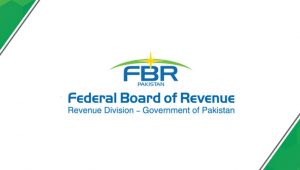Islamabad: The Federal Board of Revenue (FBR) has proposed several amendments to the Income Tax Rules 2002 in order to access the bank lockers of tax defaulters, a news source reported. To this effect, the taxation agency has sought suggestions within a time frame of seven days.
Read: Banks to share transaction details with FBR
According to details, if FBR does not receive any objections or it turns down any reservations submitted by stakeholders, then the new rules will come into effect within two weeks. The FBR will also upload a draft of the new rules to its official website.
In the proposed draft rules, the board has presented a wide-scope definition, according to which it could recover taxes from:
- An employer owing or who may owe salary to its employee
- A debtor owing or who may owe money to the taxpayer
- A tenant owing or who may owe money to its landlord
Meanwhile, ‘holding or who may hold’ includes bank accounts, Term Deposit Receipts (TDRs), fixed deposits, money held in lockers, or Call Deposit Receipts (CDRs). Another proposed rule states that FBR’s scope be extended to money or an asset placed in bank lockers, and the board be allowed to access the lockers.
Read: FBR identifies cases of money laundering in remote areas
FBR spokesperson Dr Hamid Atiq Sarwar said the board had drafted the new rules following the directives of the Lahore High Court (LHC). Following the approval of the new rules, FBR will place the draft on the website to invite comments from stakeholders, he added.
The official stated that the aim of the new rules was not aimed at giving more discretionary powers to the taxation agency, but to streamline its discretion in the recovery cases. He added that FBR’s recovery powers would remain limited to legal mandate defined in Section 140 of the Income Tax Ordinance 2001.
Read: Businesses should initiate calls for documentation: FBR Chief
Meanwhile, the Ministry of Law & Justice would also vet the proposed draft, he said.
Currently Section 140 of the ordinance does not give FBR the authority to recover money from the bank lockers of the citizens.








